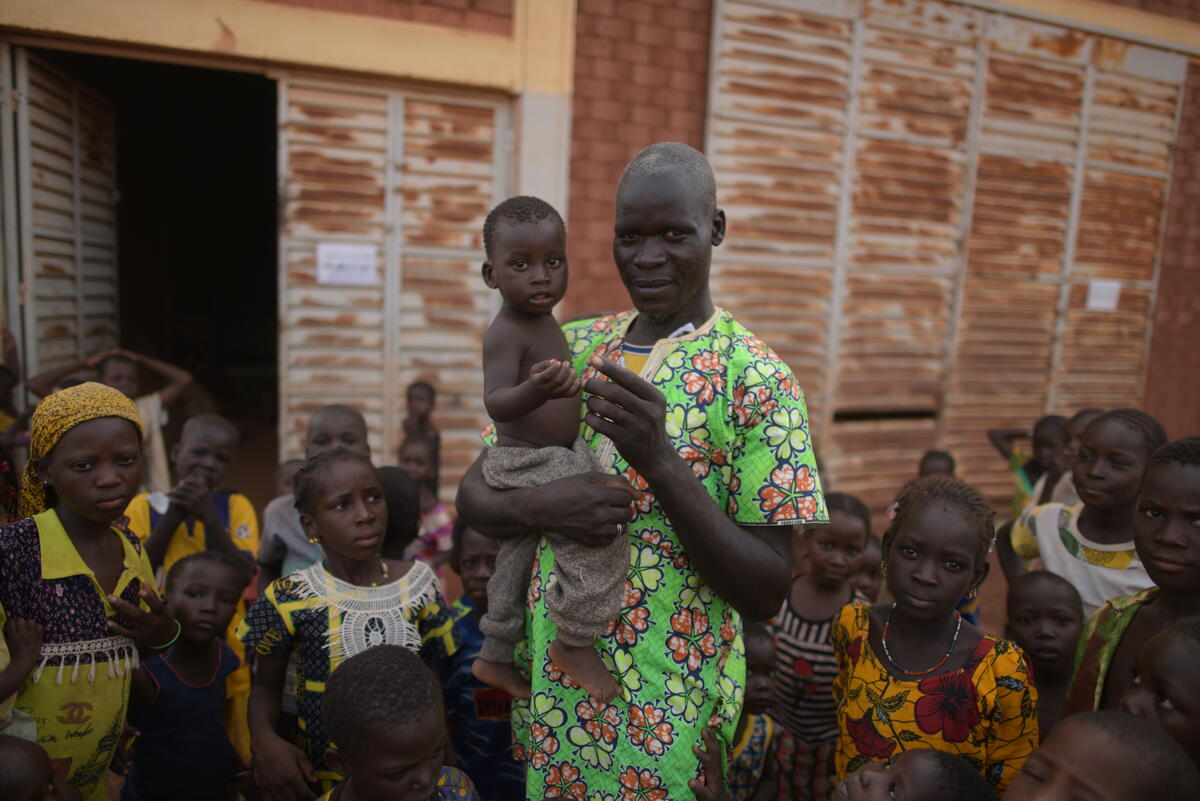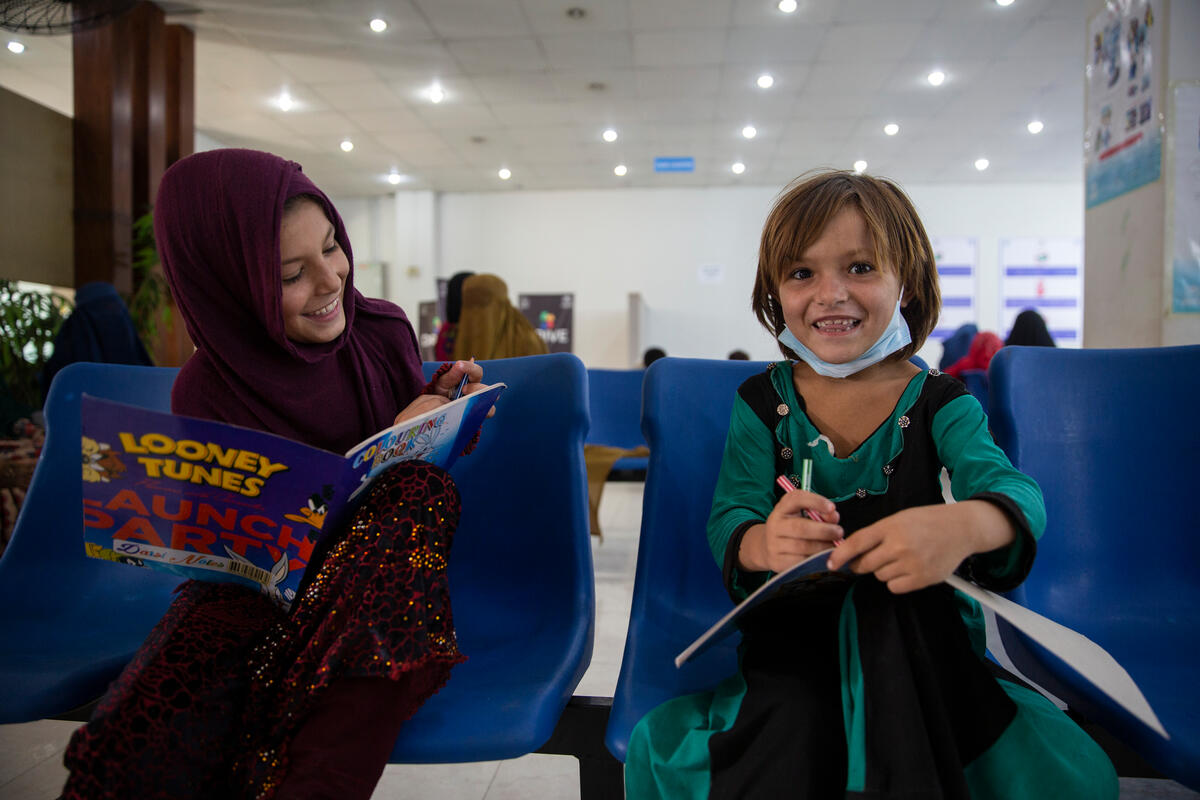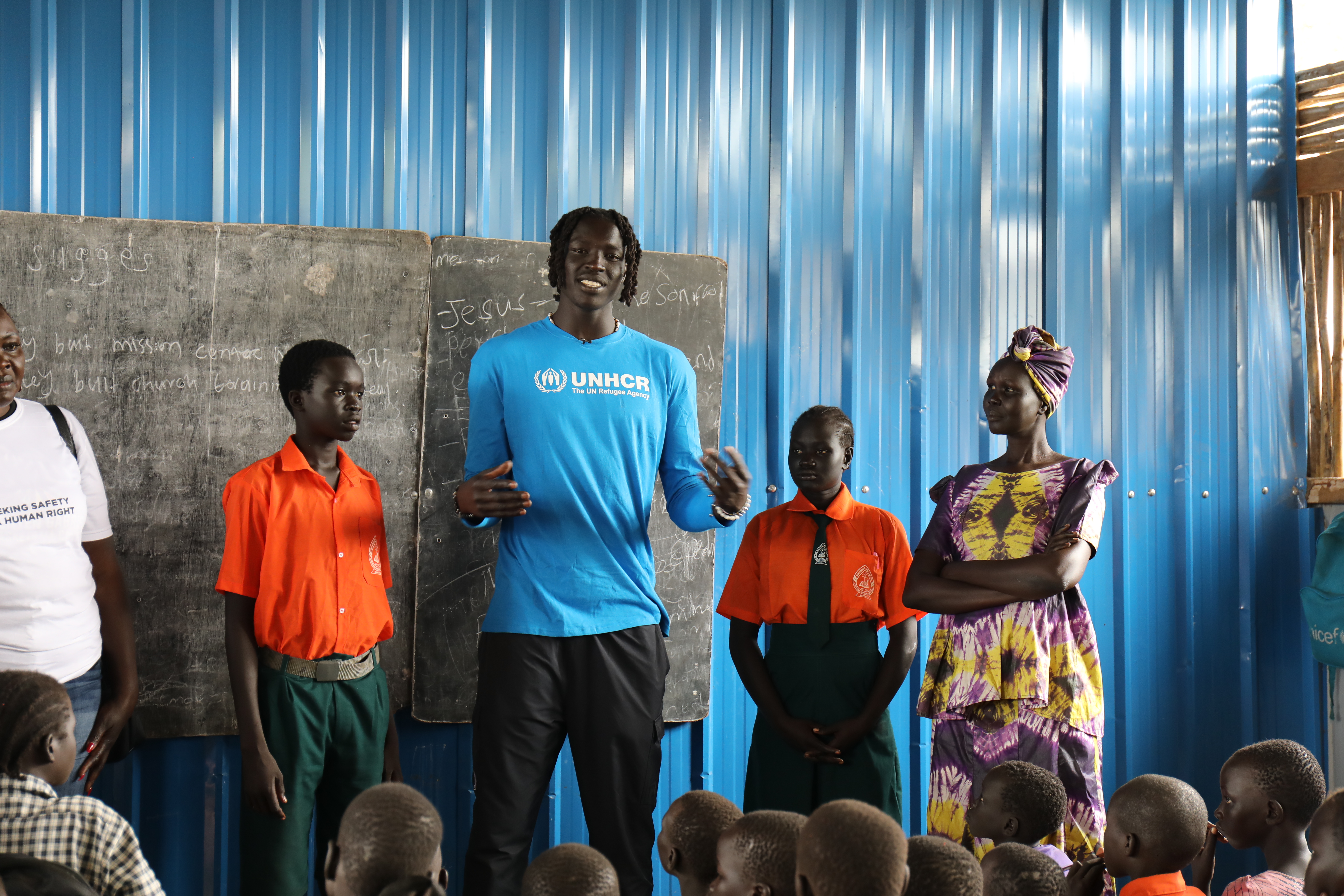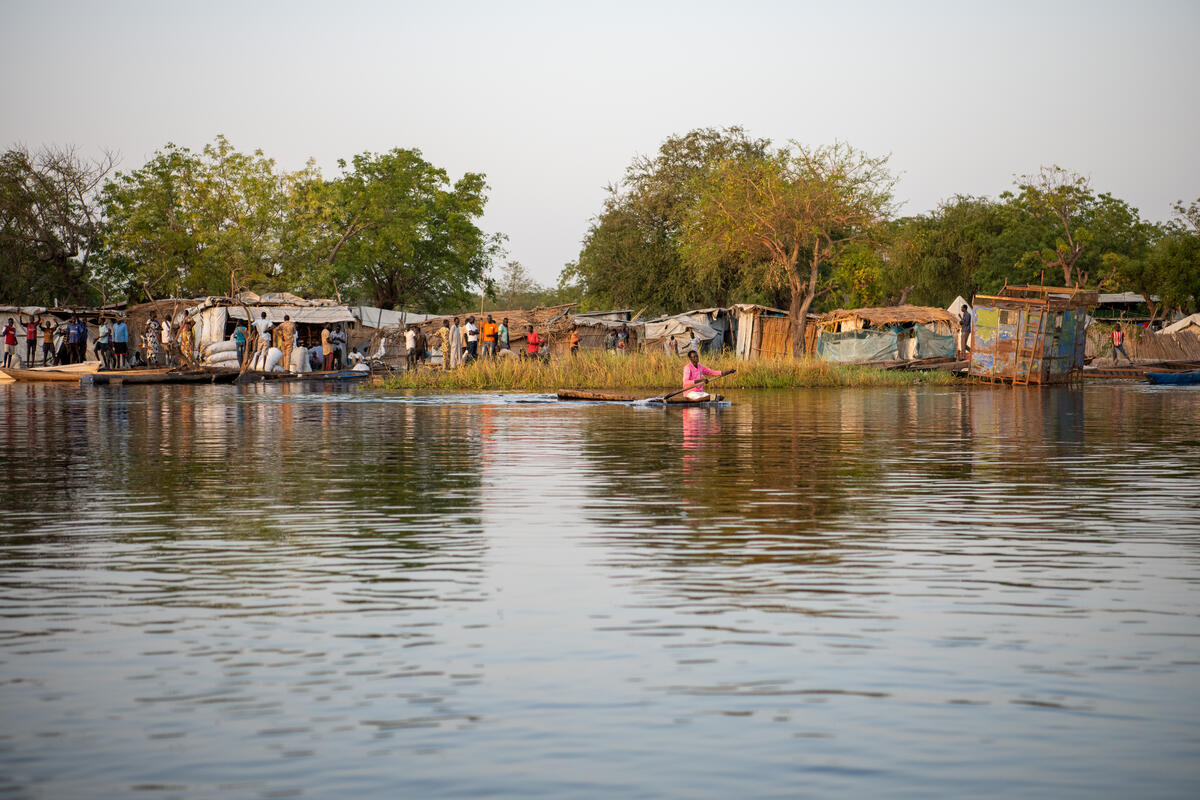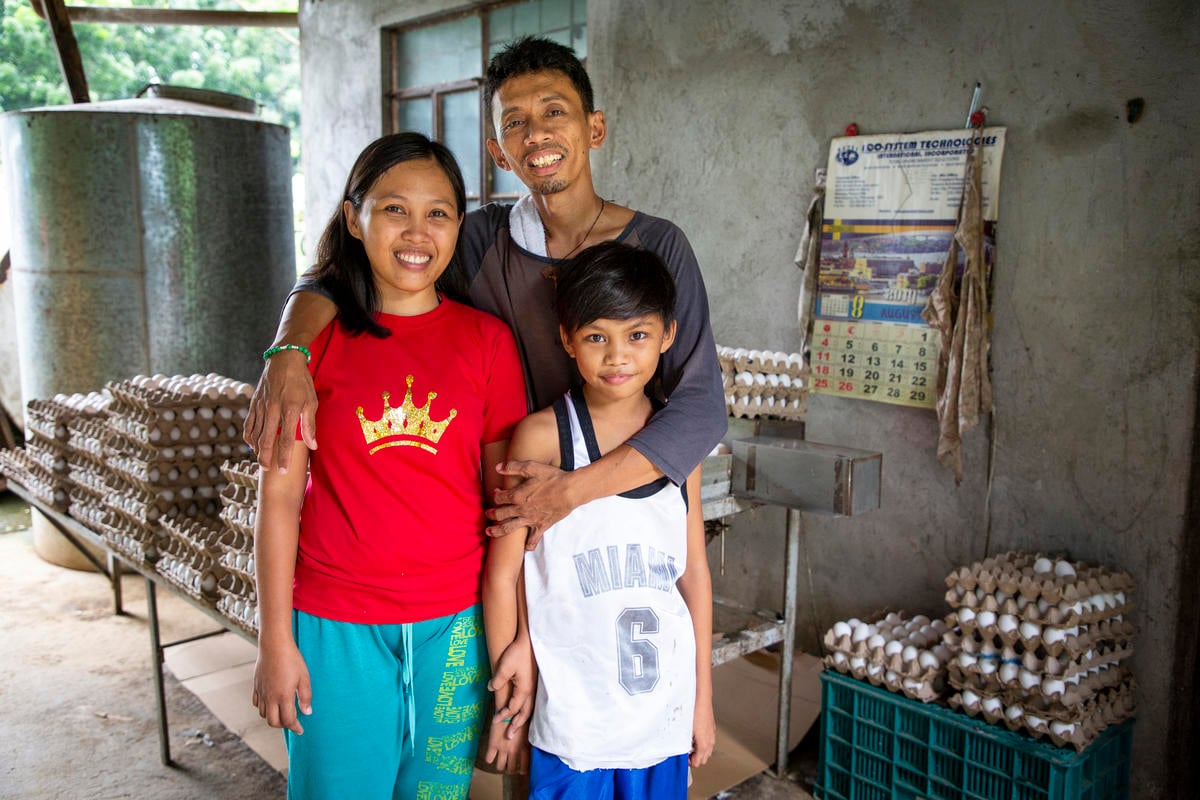UNHCR scales up registration of Syrian refugees in surrounding region, as arrivals grow
UNHCR scales up registration of Syrian refugees in surrounding region, as arrivals grow
With hundreds of people fleeing Syria daily to surrounding countries, UNHCR is scaling up its capacity for registering Syrian refugees. Registration is important because without it people may have difficulties in access to basic help and services.
In Tripoli, north Lebanon, on Monday we opened a new registration facility at the Rachid Karame International Exhibition Centre. This will allow processing of up to 700 people per day. Currently, northern Lebanon has around 20,000 registered refugees. Thousands more are waiting to be registered even as new people arrive.
The centre's opening follows an information campaign in Lebanon to encourage people to register. Many displaced Syrians have been reluctant to register. While refugees are receiving some humanitarian assistance pending registration, registration is critical to receive medical care and to enrol children in Lebanese public schools, which resume next month after the summer break. UNHCR through its partners will cover the school fees of displaced Syrians and over the summer break has been running remedial classes for children struggling with a different curriculum and language of instruction. Before the summer break some 1,200 Syrian children were studying in schools in the North of Lebanon, and we estimate that another 3,000 to 4,000 children enter the system in September following registration.
Overall in Lebanon, and including those in the north, 37,740 Syrians have registered, with another 1,700 receiving assistance while they await registration. Of the registered population, 57 percent are in the North, while just over 40% are in the Bekaa in the east of the country. Smaller numbers of refugees are in Beirut, Mount Lebanon, and the south of the country. Registration continues in the Bekaa valley and Beirut.
Meanwhile, the security situation for refugees in the northern border areas of Lebanon is deteriorating. Northern parts of the Wali Khalid area, where several hundred refugee families reside, is targeted by shelling from the Syrian side of the border two-three times per week. Despite this situation, many families prefer to stay in the unsafe border areas where they have found refuge with host families than move to a collective shelter.
Elsewhere in the north of Lebanon, refugees with little money struggle to pay high rents for often substandard accommodation. In Tripoli, for example 90 percent of refugees are in rented accommodation costing at least $250 a month for two rooms. The generosity of host families is being stretched and conditions are crowded. UNHCR was told of one family in Tripoli who was hosting four families.
While most Syrians are staying with host families or renting apartments, an increasing number are seeking shelter in schools in the north and the east, a sign that local communities are unable to host more refugees in their homes. In the Bekaa valley area, some 94 families are now staying in schools including 80 in schools that are expected to reopen for the new school term in September. In the North, 51 families are currently staying in operational schools. UNHCR is scaling up its efforts to find alternative shelter for these refugees.
While refugee numbers continue to rise, UNHCR is receiving reports that many more Syrians have had difficulties crossing the border safely. Some said they spent four hours trying to reach the border (normally it would take no more than an hour) due to problems crossing checkpoints where they are questioned and cars searched.
Jordan
Over the past two days there has been a marked drop in the number of Syrians crossing into Jordan. Only 283 Syrians crossed the border on Saturday night compared to what had been a steady average of about 400 people arriving each night since July. Refugees have reported being fired upon by artillery and small arms while travelling to the border.
Some 6,000 people are now residing at the Za'atri camp (some 15 km from the border), with some 7,269 staying in other collective sites for refugees across the north of Jordan. While the desert wind continues to wreak havoc with the tents and life is tough for the refugees, UNHCR and its partners are working hard to improve conditions in the Za'atri camp. Electricity is being installed which will improve lighting to the public areas and make the camp safer for residents. Solar lamps have now been distributed to each tent. The Moroccan field hospital is now in operation and the French hospital is being established, boosting medical facilities in the camp.
Meanwhile in Amman, there has been a surge in the number of people applying to register with UNHCR with some 300 requests day over the past few days, compared to an average of 200 a day in the previous week. UNHCR does not believe the real size of the refugee population in Jordan is reflected in registration figures (45,998), as many people have been reluctant to register. We note that the Government of Jordan estimates that 145,000 to 150,000 people have arrived since March 2011.
Turkey
The pace of new arrivals to Turkey increased over the weekend, and 59,710 Syrians have now fled to Turkey including 2,000 people who are staying in schools in Adana waiting for spaces to become available in camps. Not all of these people have yet been registered by the Turkish authorities. Ten thousand of these people arrived over the past four days. Fifty percent of the refugees are children. Only a thousand of the new arrivals could go to the Gaziantep camp due to a shortage of space, while others are being placed in boarding schools in Oguzeli and a few hundred people are being accommodated at a gym in Islahiye. Another 2,000 people are at the border in Kilis / Oncupinar in the process of admission, and will be transferred to Osmaniye boarding schools until the new camp at Osmaniye is operational. A new camp is being established at Karkamis which is expected to be opened by the end of the month.
Iraq
Iraqis are continuing to return to Iraq from Syria. Some 25,906 have returned since 18th July, including some 400 on Saturday and 328 on Sunday. Most of these have returned through the Al-Waleed land border. A further 6,000 refugees have returned by air. The needs of the returnees range from ID documents to food, healthcare, cash and jobs. Many say their houses in Syria were destroyed by shelling and gunfire. One reported spending four days without food or water because of military operations. Those coming from Aleppo said they were forced out of their homes by armed forces.
At the same time, Syrians continue to flee to Iraq with 117 people arriving at Al-Qa'im on Saturday and 115 on Sunday. People are being directed to the newly opened camp at Al-Qa'im, and starting today the government is moving refugees from a school where many are housed to the camp. The total number of Syrian refugees in Iraq (including Kurdistan) is now 14,129. Of these, 13,025 have been registered.
Syria
In Syria, the situation is becoming more precarious for the refugee population. The minibus of a Somali refugee family of 11 trying to flee Tal Mneed and heading to Hornah was hit by arms fire. A nine year old boy was brought by a group of Syrian men to the Somali community in al-Hurneh, and the whereabouts of the rest of the family on the bus is unknown. A group of 70 Somali refugees was relocated by the Syrian Arab Red Crescent (SARC) on Sunday from Hurnah to Masaken Barzeh where they were temporarily hosted by Somalis. But host families are feeling the strain and some have been evicted by landlords for hosting other displaced people. This group have now been relocated by SARC to schools in Zahira.
UNHCR operations are continuing despite the worsening security situation. Over recent days, we have distributed relief items such as jerry cans, mattresses and plastic sheets in Aleppo and Hassakeh. Health teams are operating in Masaken Barzeh and Zahira, and psychological counseling continues by phone. UNHCR continues to receive calls on its hotlines with refugees expressing concern about threats received, financial difficulties, and food assistance. Other refugees are calling us with queries about returning to Iraq and resettlement.
Statistics
UNHCR's official registration figures do not reflect the entire refugee populations in some countries as refugees are waiting or reluctant to register. As of 13 August the number of formally registered Syrian refugees and in the process of being registered in surrounding countries was 157,577 (45,998 in Jordan, 37,740 in Lebanon, 14,129 in Iraq, 59,710 in Turkey).
For further information on this topic, please contact:
- In Beirut: Ariane Rummery on mobile +961 7100 2689
- In Geneva: Adrian Edwards on mobile +41 79 557 91 20


